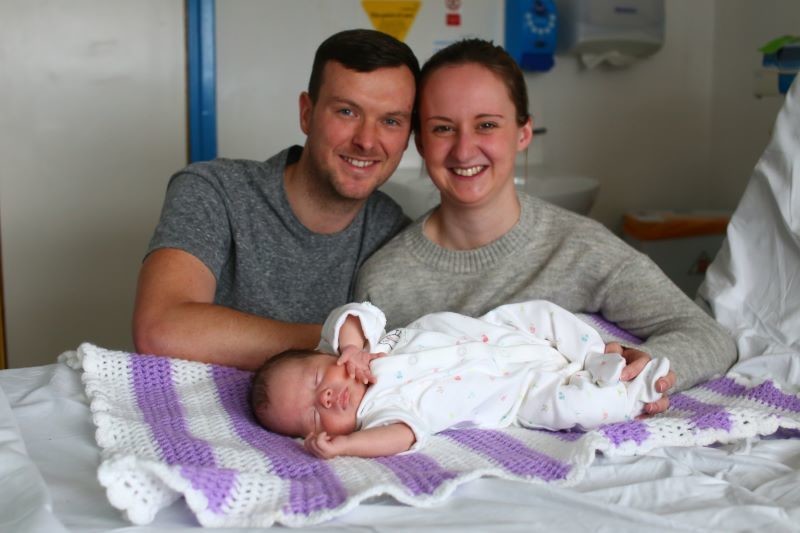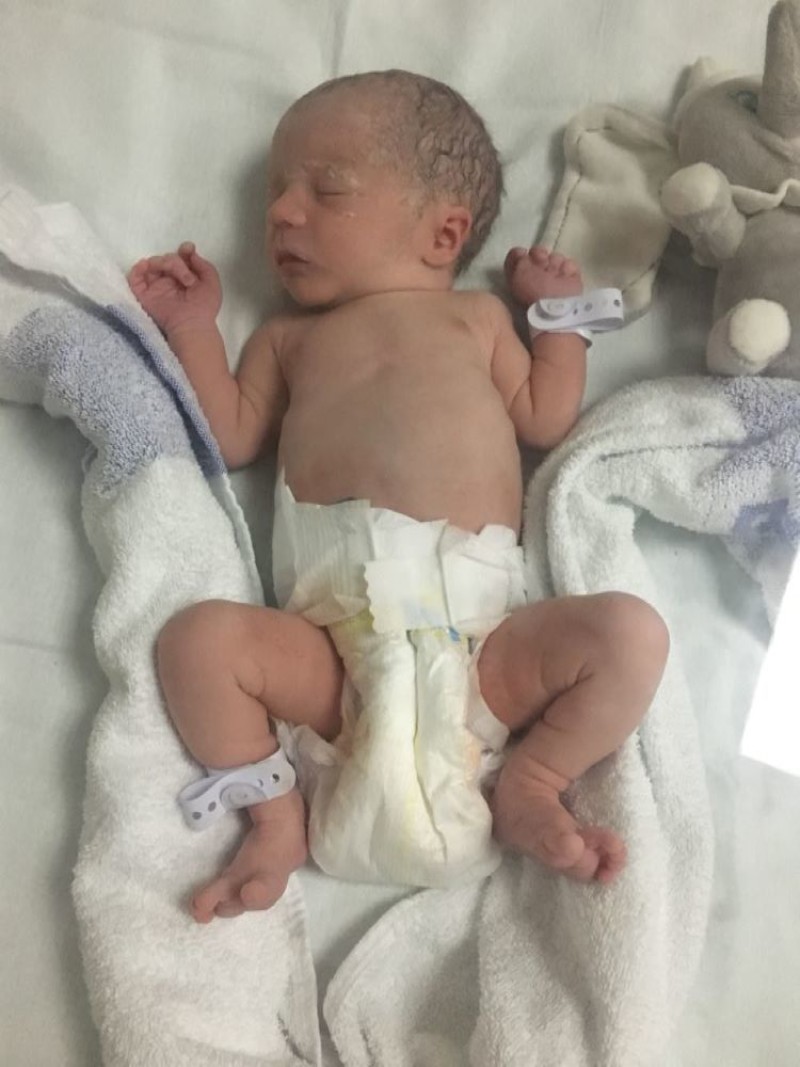A MOTHER whose first-born daughter died of meningitis was hours away from losing her four-week-old baby from the same virus exactly a year to the day since tragedy first struck.
Lily Cole and partner Ray Spencer’s daughter, Esther who was born on February 18 of last year died aged 16 days after displaying signs of what was thought to be colic.
Having been born at 37 weeks she was a normal, healthy baby until the night of March 3, 2018, when she woke up screaming.
The couple, of South Lane, Cawthorne, nursed her through the night but her condition deteriorated rapidly and tests showed she had contracted streptococcus B meningitis, which took her life just three days later.
Lily, 23, gave birth to her second daughter, Elsie, on February 6 this year but the tot made the same ‘piercing scream’ on the anniversary of her sister’s death behaviour which prompted Lily and Ray, 31, to rush to Barnsley Hospital where they have been since.
“It was exactly a year after losing Esther we couldn’t believe it but I just knew something wasn’t right,” Lily, a teaching assistant, told the Chronicle. “It was the same cry and it’s something we’ll never forget.
“With Esther we were first-time parents where every cry is unknown so I phoned the chemist at 8am the following morning, who suggested to use Infacol and to monitor her for 24 hours.
“Just an hour later, Esther’s condition had deteriorated rapidly and I phoned 111 for advice, who suggested ringing 999 immediately.
“We arrived at Barnsley Hospital at about 9.15am and she spent the remainder of the day there before being transferred to Sheffield Children’s Hospital.
“Test results showed she had streptococcus B meningitis and on March 6 we had to make the heartbreaking decision to turn off Esther’s life support machine.
“Blood tests showed that Elsie also had the same streptococcus B infection, despite her having 48 hours of antibiotics after birth as a precaution because of what we went through before.
“Had we not gone to A and E immediately, our second baby daughter would have died on the same day as Esther did.
“It’s shocking just how quickly this illness takes hold but luckily this time we had recognised the signs a lot earlier and acted faster.”
Two in five adults are carriers of the bacteria but it only usually becomes a problem in pregnancy if it spreads to the baby as it did with Esther and Elsie whose infant immune systems struggle to cope with the effects.
Elsie, who will be transferred to Sheffield Children’s Hospital, will have a cannula fitted ahead of a three-week course of antibiotics after further meningitis tests this week came back negative leading Lily to issue a warning for parents to be aware.
“Doctors are treating her for streptococcus B sepsis until we get more results and Elsie will have a hearing test in the future, as well as close monitoring as she grows up,” she added.
“Most adults will never be aware that they are carriers of the bacteria as it never really affects them, but for babies it’s linked to meningitis and can prove to be fatal as we know firsthand.
“Time really is crucial in cases like this as their bodies are so small they cannot efficiently fight the infection without having rapid treatment.
“We’re hoping and praying for good news and a happy and healthy little girl but we’re so lucky we spotted the signs early this time otherwise it doesn’t bear thinking about.
“There’s a lot to learn being a new parent but my advice is for people to make sure they know the signs and get treatment straight away.”
The signs parents MUST look for
STREPTOCOCCUS B is the biggest cause of neonatal meningitis in newborn babies, according to a charity which has urged parents to trust their instincts before it could be too late.
There are around 250 cases each year in the UK and ten to 12 per cent of these cases are fatal, according to Meningitis Now while up to half of survivors may be left with long-term effects.
Although most adult carriers build up a natural immunity, the opposite can happen for newborn babies whose immune systems have not developed sufficiently to battle the bacteria.
Symptoms include:
Fever; reluctance to feed; vomiting; irritability; unusual breathing; blotchy skin; high-pitched cries; a swollen abdomen; a rash which does not fade under pressure and dry nappies.
A spokesperson from Meningitis Now said: “There is currently no vaccine to protect against streptococcus B and no national screening programme in the UK to routinely check all pregnant women to see if they are carrying the bacteria.
“However, a risk-based strategy is used and antibiotics can be given to women at increased risk during labour and also to babies immediately after birth.
“The signs and symptoms of meningitis or septicaemia are often non-specific at first and can be difficult to recognise in very young babies, so our advice is for parents to trust their instincts and seek urgent medical attention if they suspect their child is ill.
“Babies need rapid admission to hospital and urgent treatment with antibiotics.”




























